Under Barbed Wire: Religious Freedom in indian-Occupied Kashmir
October 04, 2022.
indian-occupied Kashmir.
Despite being currently ruled by a right-wing Hindu nationalist government, India claims to be a “secular democracy.” Its constitution allows for the freedom of religion, meaning people should be able to follow and freely practice their religious beliefs. India’s constitution says that the state will not “discriminate, patronise or meddle in the profession of any religion”. However, when it comes to Islam and Muslims, and especially when it comes to its colony in Kashmir, religious freedom and claims of secularism mentioned in the Indian Constitution is completely absent.
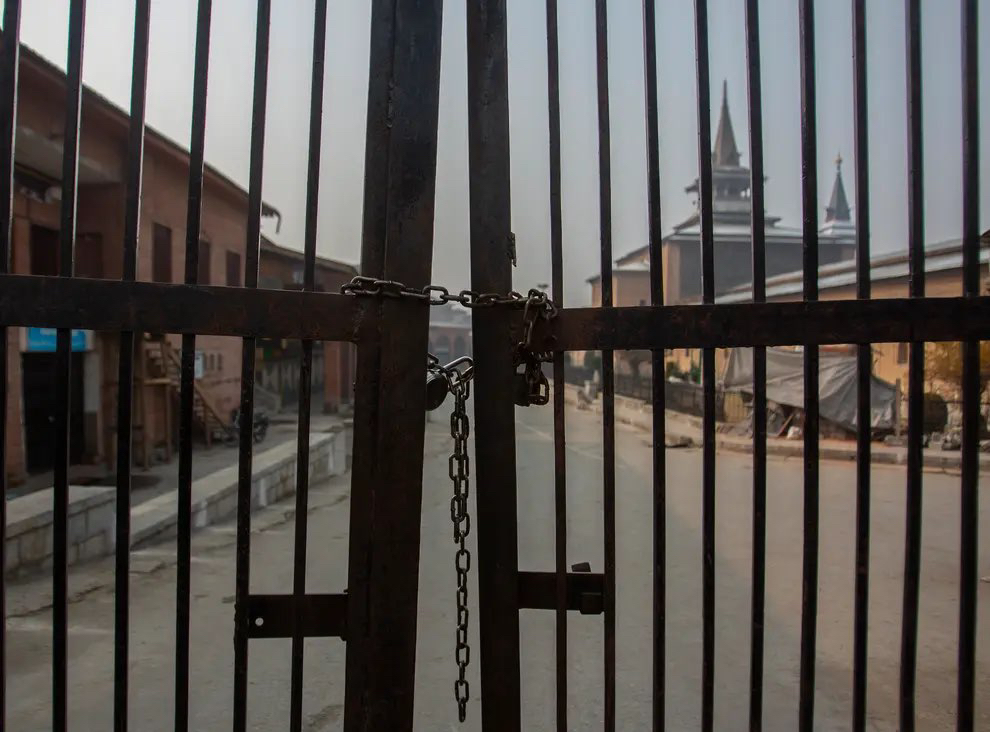
(photo: AP)
Instead, the state is attempting to erase people’s Muslim identity and facilitate Hindu supremacy. This is evident in the United States Commission for International Religious Freedom (USCIRF)’s 2022 report, which has designated India as a “Country of Particular Concern” for “for engaging in and tolerating systematic, on going, and egregious violations of religious freedom”.
Last week, social media was rife with videos of Kashmiri students being forced to chant Hindu hymns for Mahatma Gandhi’s birth anniversary. This came immediately after popular Muslim clerics across Kashmir were detained and slapped with the draconian Public Safety Act.
Here are some other events that expose India’s denial of religious freedom and enforcement of Hindu supremacy in Kashmir:
Muharram Processions Banned for Three Decades
Muharram processions have not been allowed in Kashmir since 1989 due to “security reasons” and this year was no different. These processions are critical to the religious practice of Shia Muslims worldwide, who commemorate the death of the Prophet’s grandson and members of his family. While Muharram this year collided with India’s Independence Day circus in Kashmir, the processions were attacked by Kashmiri Police and CRPF and mourners were critically injured. This happened in one part of the Srinagar city while in the other part, Indian nationalist “Tiranga Rallies” and “Flag Marches” were organized within a thick security cover.
Janamashtami Processions Across Srinagar Under Police and CRPF Presence
Shortly after Muharram, Srinagar city saw processions led by Hindus for the celebration of the birth of Lord Krishna. Amidst loud pomp and show, these Janamashtami processions were provided security and thus organized under the aegis of the state. Notably, Kashmiri Pandits are known to be Shivites or followers of Lord Shiva and Janamashtami celebrations never used to be amidst such grandeur in the past.
Desecration of Qur’an by Indian Army
On many occasions, the Indian army has desecrated the Qur’an, the holiest text for Muslims. This desecration is an attempt at psychological warfare and done with full knowledge of the consequences. In 2013, as the videos of one such incident went viral, Muslims in the region protested and were met with force, leading to the death of four Kashmiri protestors.
Srinagar Jamia Masjid Closed for Friday Prayers for Three Years
The 600-year-old grand mosque of Srinagar has been shut down for Friday prayers for the past three years. The mosque has been revered by Muslims across Kashmir for centuries. On religious occasions like Eid, Shab e Meraj and Shab e Baraat, hundreds of thousands of devotees throng the mosque from all over the region. The head preacher of the mosque, Mirwaiz Umar Farooq, has also been held under continuous house arrest and not allowed to deliver Friday sermons.Recently, in a public statement the Lieutenant Governor of Kashmir refuted the claims about Mirwaiz being under housearrest only for the religious cleric to be denied permission to deliver the Friday sermon at the grand mosque a few days later.
This week, a whole drama unfolded when an Indian lawmaker tweeted to the Lieutenant Governor of Kashmir, questioning the prolonged closure of the mosque. The LG, refuting ‘prolonged closure’, claimed that it has been enforced for only 3 Fridays in the current year. However, the administration of the mosque clarified under the heavy presence of Kashmiri Police and the CRPF that this year prayers have been disallowed for 14 Fridays so far.
The closure of this grand mosque is not only a blatant violation of religious freedom of Kashmiris but has also been a source of emotional trauma for locals. “Something is missing deep inside my heart,” said Bashir Ahmed, 65, a retired government employee who has offered prayers at the mosque for more than 50 years.
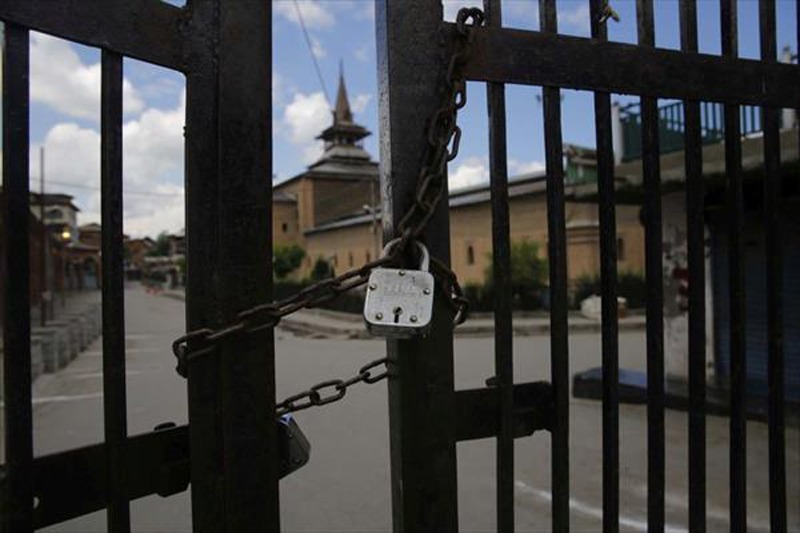
(photo: AP)
Eid and Shab e Qadr Prayers Not Allowed
This year prayers were also disallowed in the Jamia Masjid on the holiest night of the year for Muslims, Shab e Qadr. On this night during Ramadan, people from across the valley throng the mosque to pray throughout the night. The administration cited “law and order” problems for this ban but, only a few days later it disallowed Eid prayers in the Old Town Eid Gah where they are held traditionally and asked for these prayers to be carried out inside the Jamia Masjid.Notably, “praying in the open” (subject to weather and availability) is an important part of Eid prayers. There is no doubt that such tactics are not only violations of religious freedom but have also become a part of the psychological warfare that India is subjecting Kashmiri Muslims to.
Detention of Muslims Clerics
Muslim clerics from Kashmir have often been subjected to detention without charges. In a recent event, 7 prominent religious leaders were arrested across Kashmir and sent to a Jammu Jail. Those detained included Moulana Abdul Rashid Dawood, the patron of Tehreek-i-Soutul Awliya, Moulana Mushtaq Ahmad Veeri from Jamiat-Ahle Hadees, and Fahim Ramzan and Gazi Moinul Islam from Jamaat e Islami. In the period leading to the revocation of Article 370, the government of India banned Jamaat e Islami and arrested about 300 members of the organization, including the Ameer i Jamaat of JeI Kashmir, Dr. Abdul Hameed Fayaz.
“Indianising” Islam and Friday Sermons
The attacks of the Indian occupation on Islam and Muslims in Kashmir have not only been blatant and evident, but stealth and under cover too. While Friday sermons by Mirwaiz Umar Farooq and other prominent religious leaders have been disallowed owing either to their house arrests or detentions, an “Indianized” version of Friday sermons are being popularized. India also brings in clerics that align (or are forced to align) with its ideology in Kashmir.
Kashmiri activist Ahmed Bin Qasim writes that, “On many occasions, the Indian state has attacked Islam in Kashmir not by physically tormenting Muslims, but by reducing Islam to an illusory and hollow identity marker that the state imbues with whatever meaning aligns with its own ends at any given moment.”
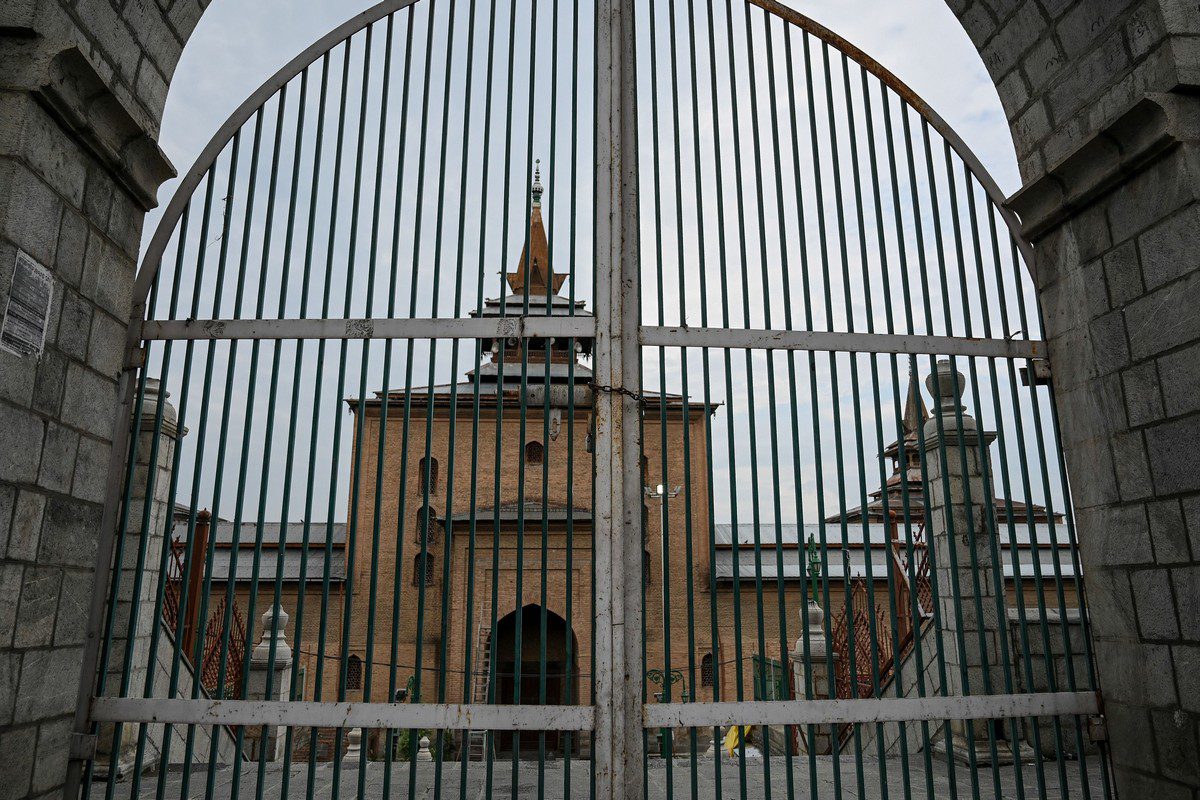
(photo: AP)
As part of its settler-colonial project, India wants to manage and eventually marginalize Kashmir’s Muslim identities and histories. The Indian government wants to suppress people’s right not only to practice their religion freely, but also enforce greater Hinduization in society. Religious freedom of the Muslim-majority population in Kashmir has been caged for decades and with each passing day, to further its settler-colonial project in the region, India continues to tighten the noose around this freedom.
To stay updated on day-to-day happenings in Kashmir, follow StandWithKashmir across our Social Media handles.
Stay in touch with Stand with Kashmir.
Stand With Kashmir (SWK) is a Kashmiri-driven independent, transnational, grassroots movement committed to standing in solidarity with the people of indian-occupied Kashmir in ending the indian occupation of their homeland and supporting the right to self-determination of the pre-partition state of Jammu and Kashmir. We want to hear from you. If you have general inquiries, suggestions, or concerns, please email us at info@standwithkashmir.org.
©2025 StandWithKashmir All rights reserved. SWK is a 501(c)(3) non-for-profit organization.
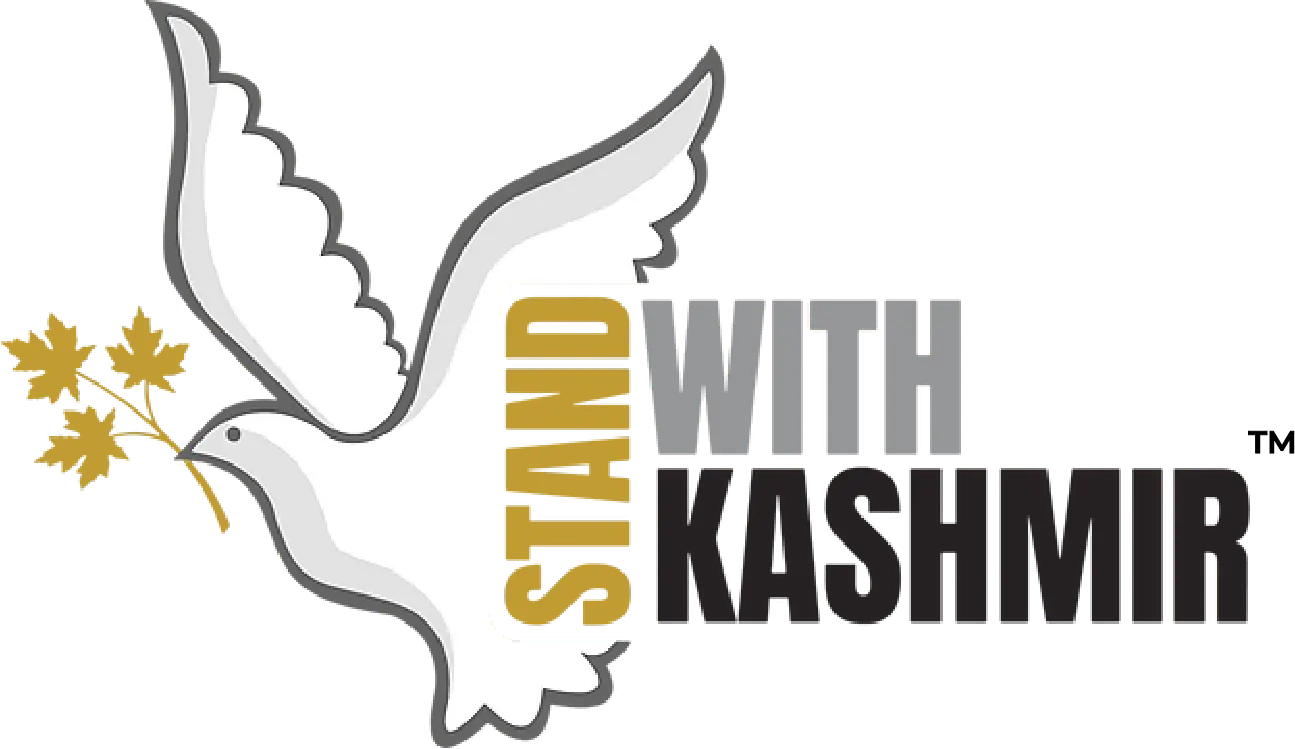
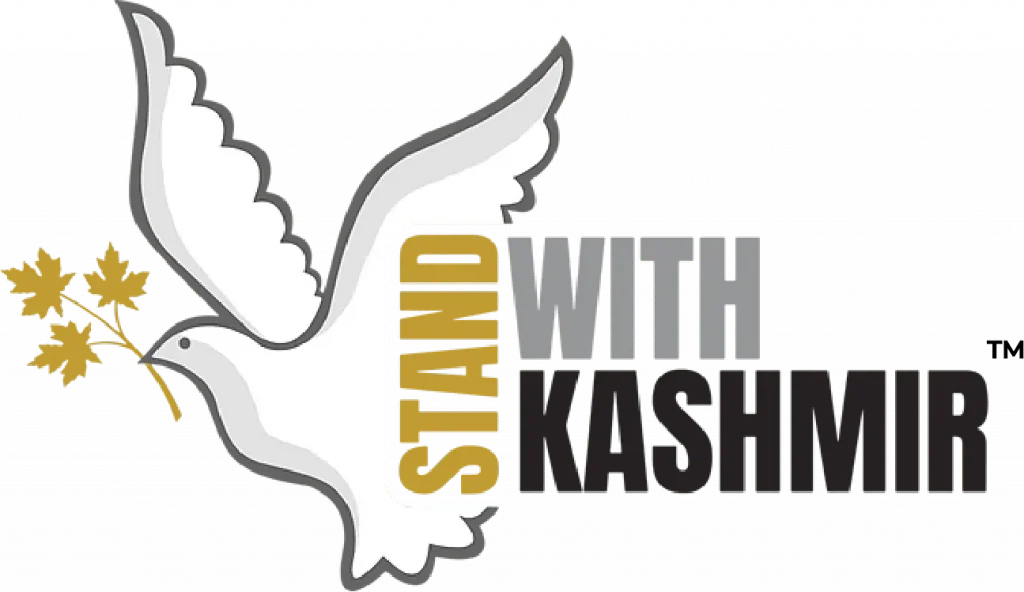
Leave a Reply